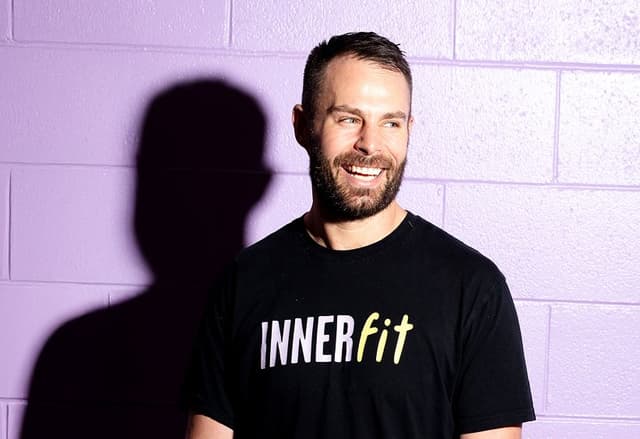Fat Loss Vs Weight Loss
- /
- Blog
- /
- Fat Loss Vs Weight Loss
Published on 7th of April, 2018
Too often I hear people saying “I want to lose weight” or “I want to drop body fat”. People seem to use both of these phrases terms interchangeably. My response is always something along the lines of “Well, which one do you want to do?”
The thing that people don’t realise is that they are two very different objectives, with very different outcomes.
Fat Loss vs Weight Loss
Weight Loss = You want to lower your body-weight. The total weight of your bones, muscles, organs and body fat.
Fat Loss = You want to lower your body fat percentage. The amount of fat your body carries on the outside and in our organs.
Problems with the term ‘weight loss’ and why I am not a fan…
If you are someone who says they want to lose weight, chances are you will be carrying a little too much body fat. And in fact, you will mean that you are wanting to lose fat. There are some people who will fall into the weight loss category, like athletes such as a jockey preparing for a race or a boxer getting ready for a fight.
Chuck the scales out and stop weighing yourself!
Weighing yourself daily is unreliable. Your body weight will fluctuate from day to day. It is influenced by so many factors. Most of the time you won’t have much of an idea of what’s going on, and the fluctuations will be out out of your control.
Reasons for your body weight varying include:
- Stomach, bowel and bladder content
- Water loss and retention
- Fat loss or gain
Body weight is so irrelevant! You can have two people who are of similar height and weight, but look completely different because one of them has a lower body fat percentage then the other. However, if you were to compare these two-people based on their Body Mass Index (BMI) they would be grouped in the same category/range, but in reality to look vastly different in their body composition. The BMI standard is flawed and not accurate as it does not take your body fat % into account.
Your scales will be your worst enemy. They will mislead you and kill your motivation.
Have you chucked the scales out yet?
Water weight, it is a real thing
Carbs & Water– Carbs bind to water- so if your one of those people that decides to follow a no carb or eat less carb diet you will certainly lose weight – water weight. That’s why when you follow a Keto or Atkins Diet you lose the most in the first 2 weeks. When you increase your carbs, you will gain weight and water retention may reoccur.
Muscle gained, fat lost – When you start any type of strength (resistance) training program you will gain a some muscle and lose fat. But on the scales, it will look like you’re not making any progress as your body weight isn’t changing.
The things that are always going to tell the truth are clothing, mirrors and pictures don’t lie. Once really useful piece of technology that is going to tell you a lot of information about how your body is made up is a Body/Dexa Scan. The best way to track your body fat is by completing a Dexa Scan. This way you will see the changes in your fat percentage, keeping you motivated.
Losing fat and not muscle…
Get stronger – Strength training prevents muscle loss, builds new muscle, and is great for your posture and overall bod function.
Eat healthy- Make sure you’re getting enough protein and eating a diet filled with unprocessed whole foods. Stay away from starchy style carbs. Now, I I’m not saying cut carbs completely, as this is not healthy or sustainable. You should include good quality carbs in your diet that are low GI, such as sweet potato. I could keep going on about this but that’s for another blog.
I often hear people ask, “do I need to do cardio to lose fat?” The answer… Yes, this is incorrect. Cardio will help speed up your fat loss, however too much cardio will cause muscle loss as well and you will end up with less definition, often called skinny fat.
To prevent this, the best style of cardio is a HIIT session, completed a couple a times a week. If you’re unsure what HIIT training is, try one of our Tabata, Spin or HIIT it Hard classes. Doing this in conjunction with some strength training and eating well will sure get you the results you are after.
Key takeaways…
- Stop tracking your progress every week, and take your body measurements every 4- 6 weeks. Weekly is not enough time to see a drastic result.
- Quit weighing yourself daily, the fluctuations will mess with your head and your motivation.
- Avoid looking in the mirror every day, take pictures every 4 weeks to see the changes across your body.
- The best way to track your overall progress is by getting a Dexa Scan every 8-12 The numbers don’t lie.
Here’s hoping those scales should be long gone by now. Happy fat stripping!

Scott: Director, Coach
“Consistency is the key to success.”
With over 15 years of experience, Scott takes a functional, no-nonsense approach to training—focusing on quality movement, strength, and overall well-being. He loves sharing his knowledge to help clients reach their goals and improve mobility. When he has the time, Scott also enjoys writing about topical fitness and wellness subjects.
